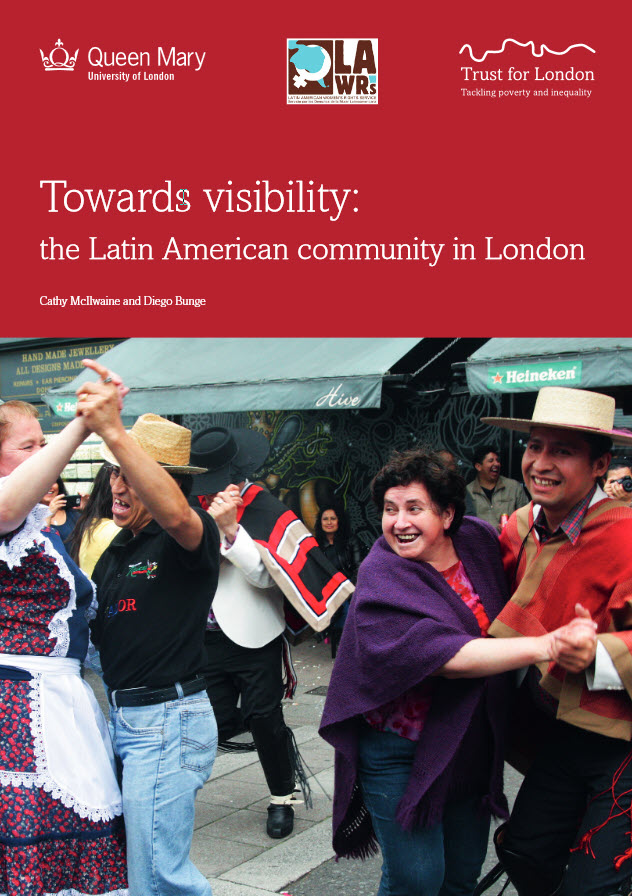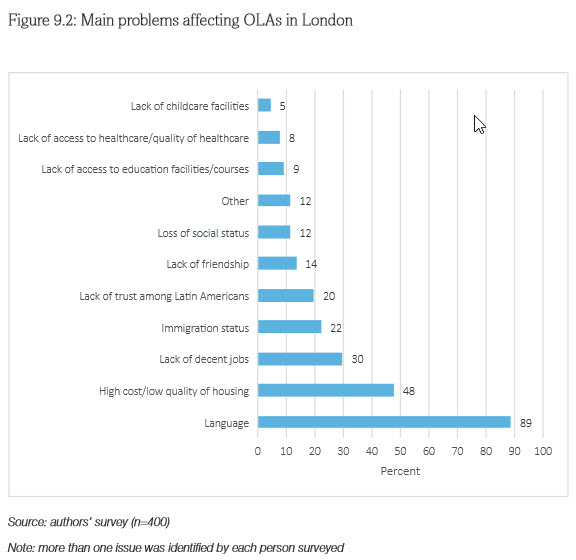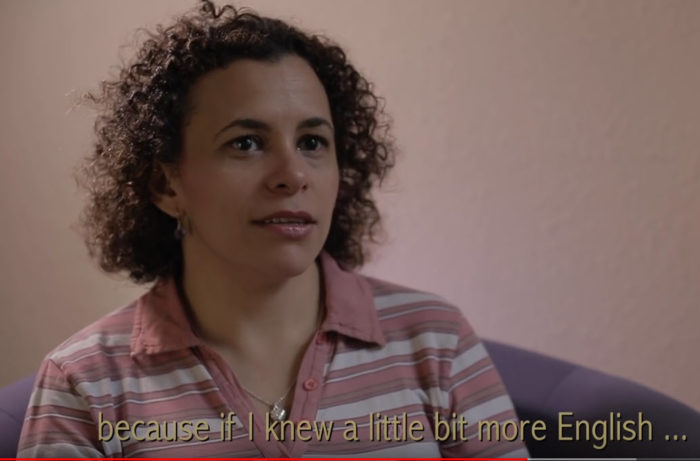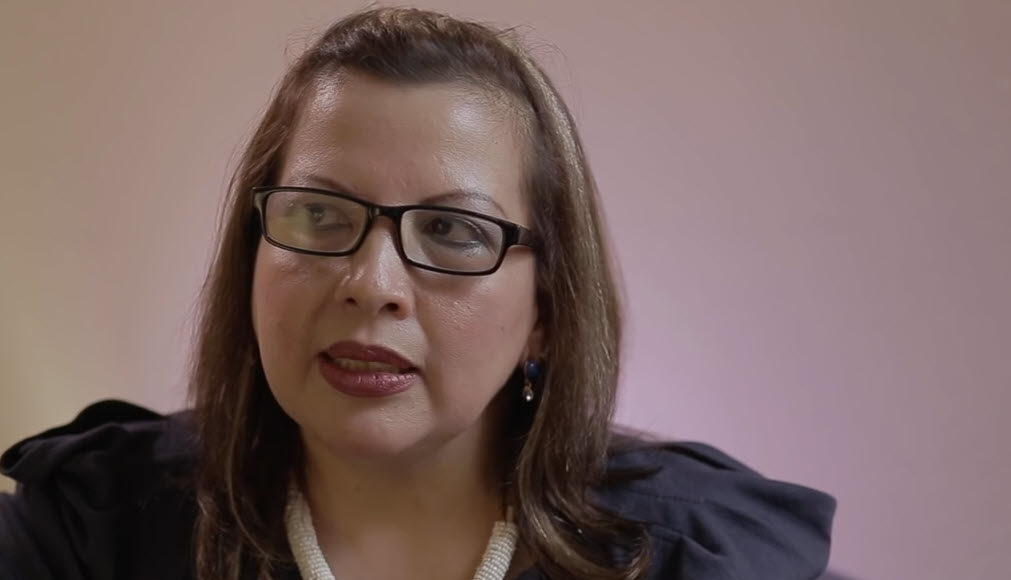This article relies on detailed research by Cathy McIlwaine and Diego Bunge at Queen Mary, University of London. It was carried out in partnership with LAWRs and funded by the Trust for London. The videos used were made for the project by the researchers.
‘This is an issue that is always there in your life. This problem puts you aside from the rest of society. You are lost everywhere you go; it’s like having your head on the moon. I’ve been living here for more than 15 years and should be speaking English already, but I am not,’ says Raquel*, a Latin American who moved to London with two goals: make money and help her family back home.

In 2013, it was estimated that there were 250,000 Latin Americans living in the UK, 145,000 of them in London. According to the 2011 census, one in five either cannot speak English or cannot speak it very well. A 2016 report compiled by Queen Mary University of London researchers Cathy McIlwaine and Diego Bunge titled Towards Visibility: the Latin American community in London found more worrying data. It focused on Latin Americans who had recently moved to the UK from another European country (the majority came from Spain) and found that 90 per cent of them said language difficulties were their main problem and that 50 per cent did not speak English well or at all.

Not being able to speak the language of the country in which you live can be a distressing experience. ‘I [recently] went to the pharmacy to pick up medicine and didn’t know how to say what I was looking for,’ says Raquel. ‘I had to show to the staff a picture on my phone. I cannot go to the meetings where they speak English, so you end up isolating yourself.’
Towards Visibility – The Latin American Community in London (long version). Video: QMUL Geography. July 2019
This sense of isolation can have deep consequences, according to the Latin American Women’s Rights Services, one of the organisations behind the Towards Visibility report. Dolores Modern, LAWRS Coordinator on Employment Rights, sums up the problem in a single sentence: ‘They are in a situation of complete vulnerability.’
Latin American immigrants who don’t speak English can get stuck in low-paid jobs with little prospect of earning a better salary. As a result, the only way they can increase their earnings is by working longer and longer hours. ‘This becomes a vicious circle from which it is very difficult to escape,’ says Modern.

LAWRS has found that 65 per cent of the Latin Americans who arrived in the UK from another European country worked in the cleaning sector, even though only one per cent had done that job in their home country. ‘In contrast, in Latin America, 30 per cent worked in jobs requiring qualifications and which were largely managerial and professional,’ the Towards Visibility report stated.
As well as low salaries, labour exploitation, health problems, discrimination and a lack of access to services are also issues facing Latin Americans in the UK who don’t speak English. It stopped María* from going to meetings at her children’s school. ‘What am I going to do? I don’t understand what they are talking about,’ she says.
María mentions an occasion when the parents were invited to attend one of their children’s classes. The teacher asked the students to read out a chapter of their books to their parents. When María’s son did this he ‘had to explain it to me in Spanish again,’ she says. ‘I felt so embarrassed.’
Raquel had a similar experience: when she discovered her house was on fire, she couldn’t call the emergency services. ‘I didn’t know what to do, fortunately, my neighbour came and asked me what was happening. I just told her, ‘Fire, you call please’, and gave my phone to her,’ she says.

There are opportunities to learn English in the UK: as well as language schools, some organisations offer free courses: for example the Friendship Centre and Latin American House; free classes are also listed on Meetup.
But there are also reasons why some Latin Americans do not learn English. One is financial: many came to the UK primarily to make money; learning a new language, even for free, takes up time that could be used for working. Others come from humble backgrounds and didn’t have the opportunity to learn a second language in their countries, says Modern.
‘Some people make fun of you because you cannot speak English,’ says María. ‘They criticise you. You cannot judge anyone because you don’t know how they live. Sometimes they don’t have time, they have kids to feed, or they tried to learn, but they couldn’t. Sometimes they are lazy too, that is true.’

Modern calls for the enactment of some of the recommendations in the Towards Visibility report. She urges the UK government to officially recognise the Latin American community as an ethnic minority: currently most Latin Americans identify themselves as ‘other’ in official forms because of the lack of a clear category for them, even though they are the eighth largest non-UK born community in London. Modern also calls for more information about public services to be translated into Spanish and Portuguese and for employers to do more to address the language issue in the workspace, encouraging their employees to learn English and find out about their labour rights.
But even though these recommendations were first made several years ago, little has been done to follow them up. In the meantime, many Latin Americans in the UK remained trapped in a ‘vicious circle’.
*Names changed to protect their identities.

